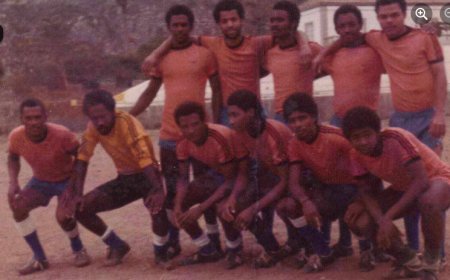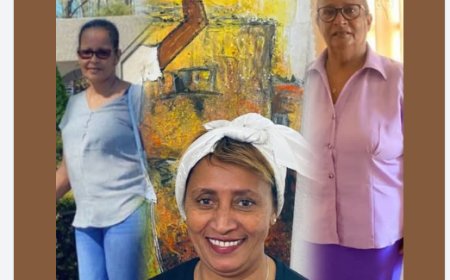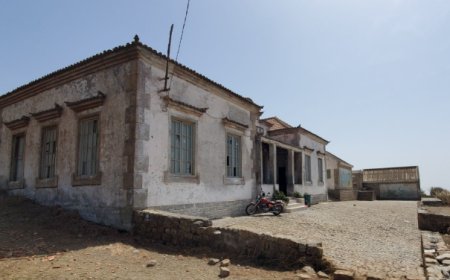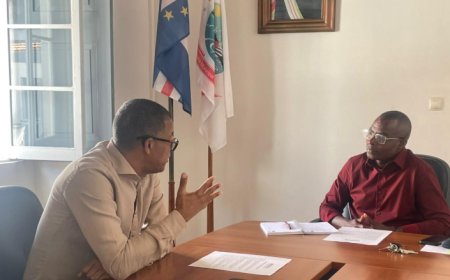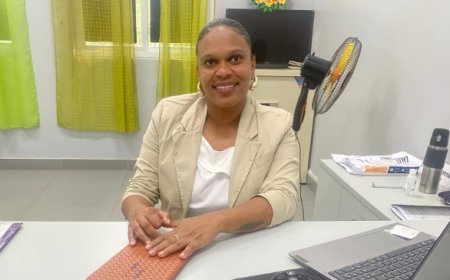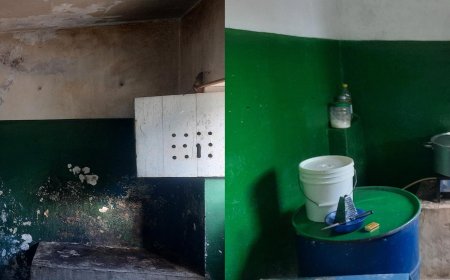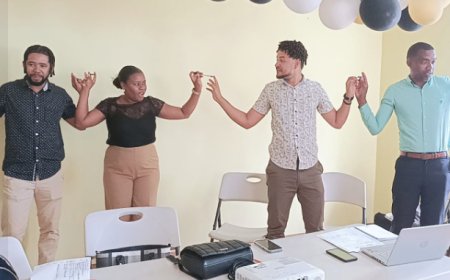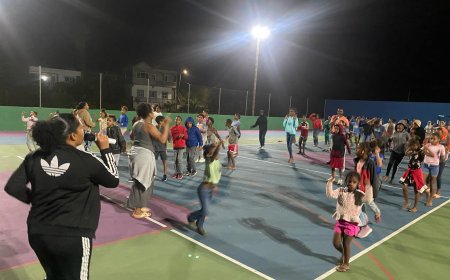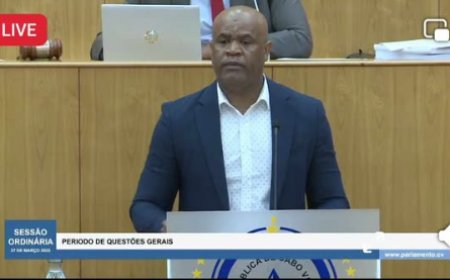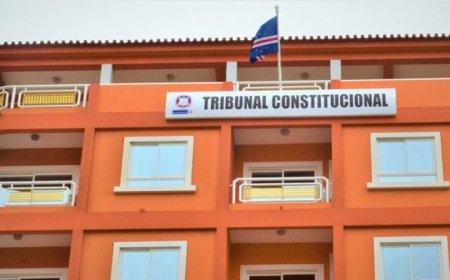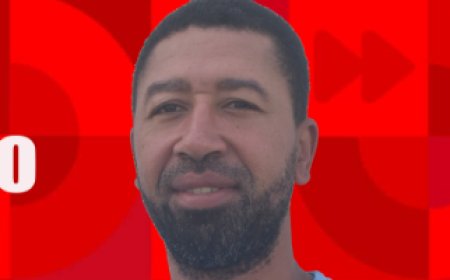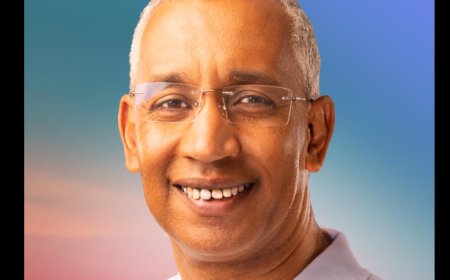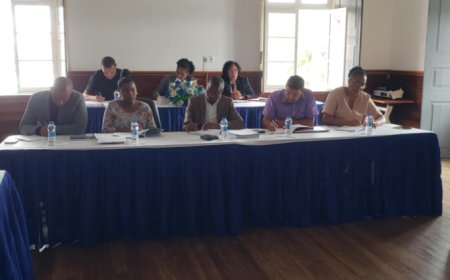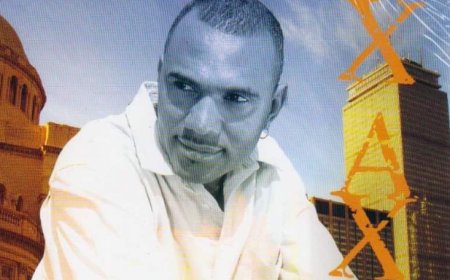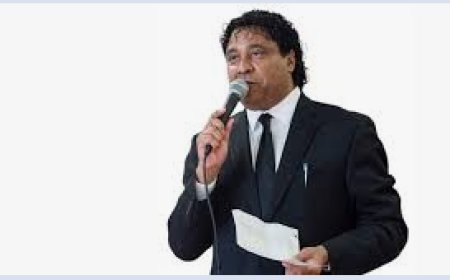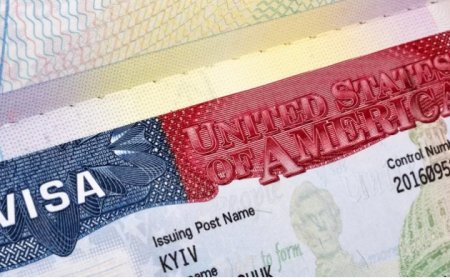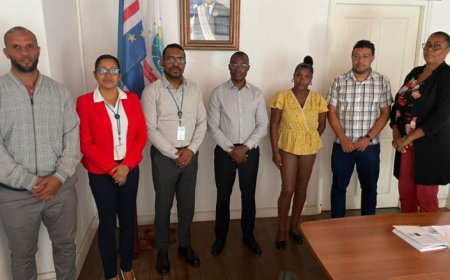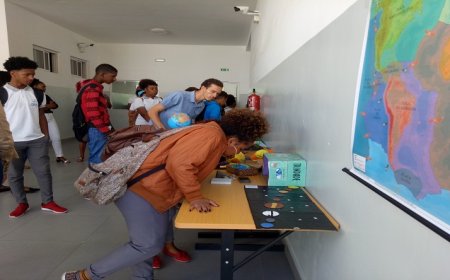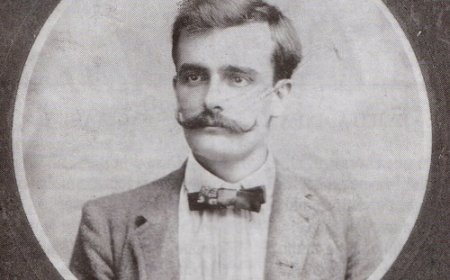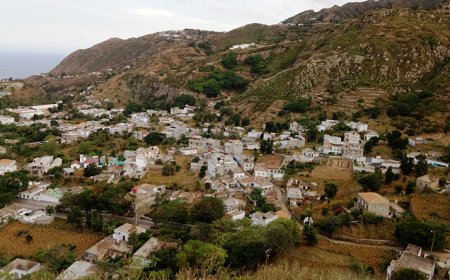Cape Verdean police criticized for "humiliating" treatment of Guinean citizen
Guinean professor Jorge de Pina Fernandes sent a letter to Cape Verdean officials in which he denounces what he considers to have been the inhuman treatment he was subjected to at Nelson Mandela International Airport, in Praia.
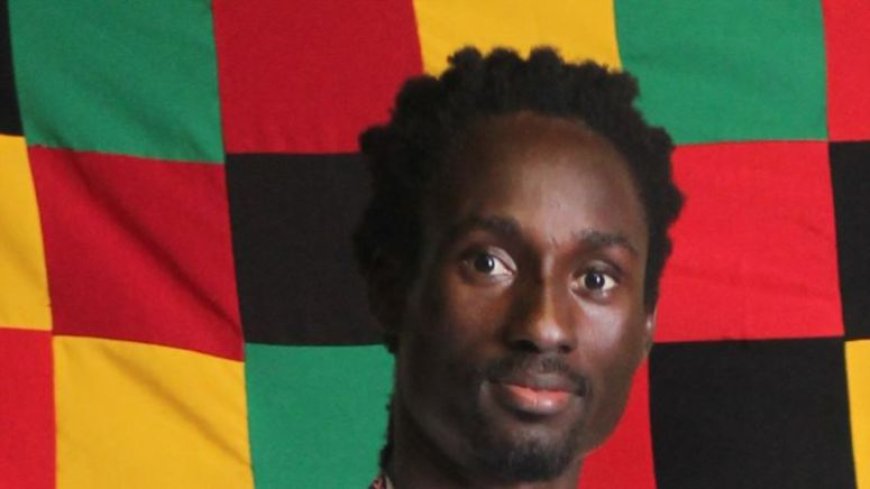
Guinean professor Jorge de Pina Fernandes sent a letter to Cape Verdean officials in which he denounces what he considers to have been the inhuman treatment he was subjected to at Nelson Mandela International Airport, in Praia.
On his way to Brazil, where he lives and completes his doctorate, Fernandes, who does not need a visa to enter Cape Verde, where he was in transit, as he has a Guinean passport, describes scenes of humiliation on the part of the border police who stopped him for two days, having even missed the flight to Brazil.
The Secretary of State for Communities of Guinea-Bissau, Malam Bacai Júnior, condemned this Friday, 4, the treatment given by the Cabo Verdean authorities to Fernandes, while the Government of Cabo Verde has not yet commented.
On social networks, there are criticisms from all sides and requests for investigation and measures.
Jorge de Pina Fernandes flew to the Cape Verdean capital's airport on October 1st on his way to Brazil, where he lives and is finishing his doctorate.
At the border, he says he was mistreated by the Emigration and Borders Service police who took his passport and held it for two days.
“Sessions of humiliation followed, they sent me for an X-ray to prove that I wasn't carrying anything illegal with me, after the machine showed nothing, they told me to sit in a room at the airport waiting for… nothing. After sitting for more than two hours, another agent named Ângela came (I couldn't retain her last name), she started asking me several questions and I answered, finally she asked me what I did for a living, I told her that he was a university professor and she, in a mocking tone, told me that she was also a professor, the whole family was and that there was nothing I could say that he didn't know, so I said, great. So why have I stayed here in this room for over two hours? I asked her and she said "I don't know, I came to replace agent Tavares and he didn't tell me about it, so you'll have to wait for the boss to arrive", he replied", narrates Jorge de Pina Fernandes
With many details, the Guinean citizen, who did not have access to a telephone to communicate with the person who picked him up at the airport because, according to an agent, "he did not have that right in Cape Verde", says that he began to film what was to happen as evidence.
“The two (agents) came at me, in a brutal action, they gave me a wiretap and removed my cell phone and threw me in the cell, after about 20 minutes they returned to the cell and forced me to unlock my phone to delete the video of the verbal and physical attacks they had made against me, which I refused at the time, but under threat of deleting everything I had on the phone, I was forced to unlock and delete the video”, says Fernandes.
The Guinean university professor spent two days in prison, “like an animal, under humiliation and low-level things, without the knowledge of the embassy and much less of my family and friends who were all afflicted without knowing my whereabouts”.
He says that it was then that “two good police officers” appeared who found it strange that he was there and that after hearing the story they took him out “disgusted with the whole situation, they apologized to me and called Dr. Cláudio Furtado who was the person who would welcome me to Praia”.
So far, according to the letter, no one has apologized, with the exception of the two agents, nor has anyone taken responsibility for having missed the flight to Brazil.
Bissau government wants clarification
Guinea-Bissau's Secretary of State for Communities, Malam Bacai Júnior, condemned the treatment given by the Cape Verdean police and hopes to have all the data to take "appropriate measures".
"The Secretariat of State for Communities is completely supportive of the complaints of the activist group, as citizens of the CPLP and ECOWAS world and we cannot accept that a Guinean citizen is treated in this way", said Bacai Júnior, clarifying that he awaits clarifications of the Cape Verdean Government, but that its Executive "will not accept and we strongly condemn this type of behavior".
no official position
On the Cape Verdean side there are no reactions from the Government, but confronted this Friday, 4th, by journalists, the Minister of Culture and Creative Industries, Abraão Vicente, said he had no data to comment.
"It is necessary to have all the information to comment, with an in-depth investigation, we will take the appropriate measures", he said.
Social networks in turmoil
On its Facebook page, the Guinean Human Rights League called for an investigation into the events and recalled that “there have been systematic reports of illegal and abusive behavior by agents of the migration and border service of Cape Verde against Guinean citizens and other nationalities of the Economic Community of West African States (ECOWAS)”.
The League calls for “the opening of an urgent and transparent inquiry, with a view to bringing criminal and disciplinary responsibility to all those involved in this heinous act”.
On social networks, the reactions were not long in coming and many demanded an investigation and measures.
University professor Iva Cabral, daughter of Amílcar Cabral, says she feels “embarrassed”.
“I feel revolted, indignant but equally ashamed of the illegal arrest he was a victim of and the inhuman treatment with which Guinean researcher and academic Jorge Fernandes was treated by the police of the migration and border services. This inhumane treatment suffered by ECOWAS citizens seems to be becoming more and more normal at the Cape Verdean border, contrary to what happens to European visitors who do not even require a visa!”, he concludes.
Cape Verdean social activist César Scoffield Cardoso writes that “to be true (and there are already too many reports of the kind) this is extremely serious. I would like to see such a case investigated and informed of the results of the investigations”.
For his part, economist and analyst Paulino Dias states that “if the facts described are true – and I see no reason why they shouldn't be – this is serious. Very serious. Because they attack the most elementary human rights in a “Rule of Law” that we claim to be”.








